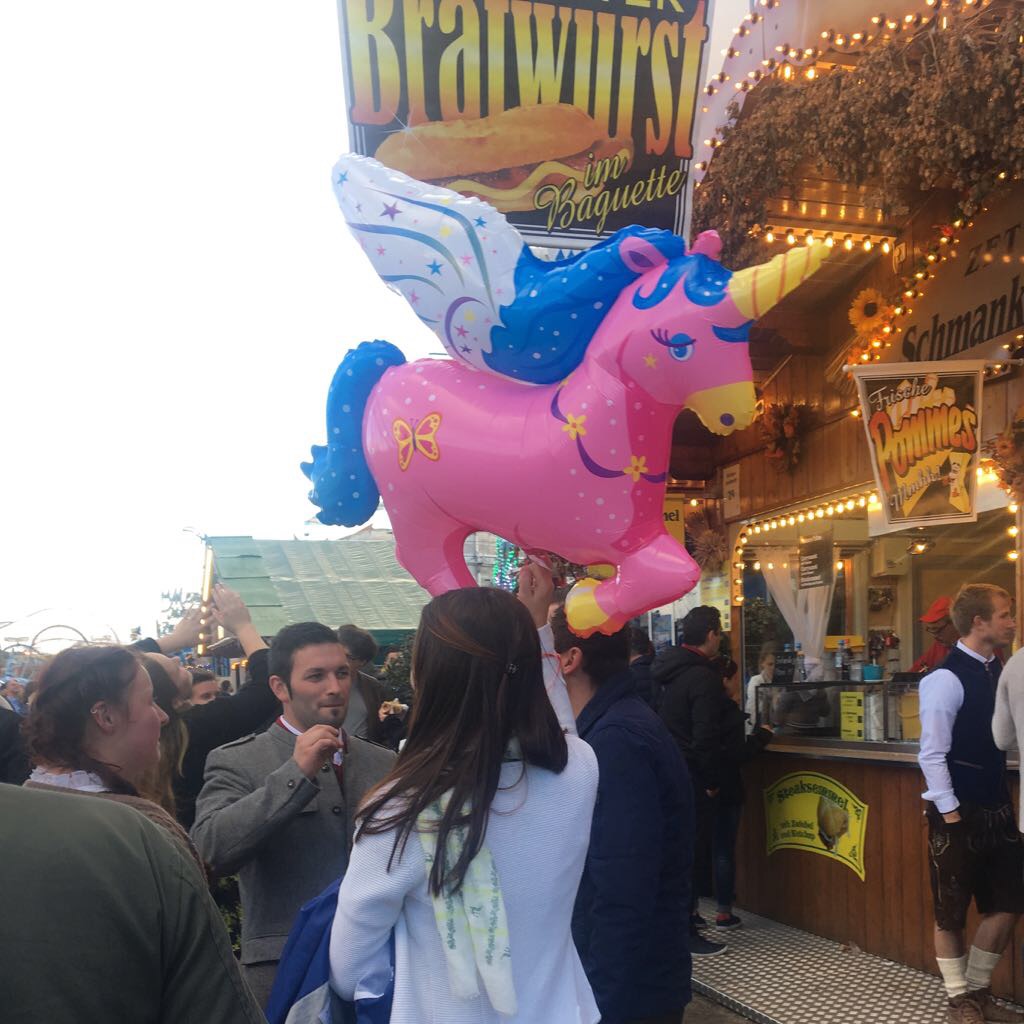
What sort of world do I want to live in? One of inflatable pink unicorns with butterflies and bratwurst in baguettes, with beer and lederhosen.
We consume the world, like an everlasting donut. We often neglect it, take it for granted, forget we have to shape it, to make it, to help it grow into something beautiful. Lest we forget and it turns to an overgrown weedy mess.

I was in Dachau, a short train ride from Munich, on the morning of the public holiday celebrating German Unity Day. Dachau was the first concentration camp built and operated by the nazis, and also one of the last to be liberated at the end of World War Two.
From 1933 to 1945, it took in around 200,000 political prisoners, Jewish people, Russian POWs, and others. If I’d paid more attention on the tour I might be more confident regarding its twisted timeline and numbers, but maybe one shouldn’t worry so much about exact dates and numbers when you walk in these ghostly, lonely corridors.

People often seem to think that thinking about how the world should be is a notion for the hippies and dreamers, those who don’t know what the real world is like, one of business, economics and sensibleness.
Often we feel powerless, or just apathetic, shrugging our shoulders, thinking the world is already shaped for us, presumably by those in charge, that there is nothing we ordinary humans need to do. It’ll basically be fine, we think, or as we say in Australia, no worries, she’ll be right mate.
A place like Dachau shows what can happen when people forget to shape the world. A place of death for over 30,000, and still not a camp even classified as an extermination camp, like the killing factory of Auschwitz and other places of the holocaust in eastern Europe.

A place with its own little gas chamber, pictured below – which we’re still not sure about the extent of its use – though there’s plenty of other documentation around those shot, and who died from malnutrition, floggings, hangings, beatings, or just who slumped over dead on the ground after having to stand to attention for hours in the cold or heat.
It is sickening to think that Dachau, though one of the most horrifying, lonely places on Earth, was overshadowed by even lonelier, more horrifying places created by the nazis.
Even more shocking to think that at one point it may have faded from history if it wasn’t for the efforts of people to preserve it as a memorial to the dead.
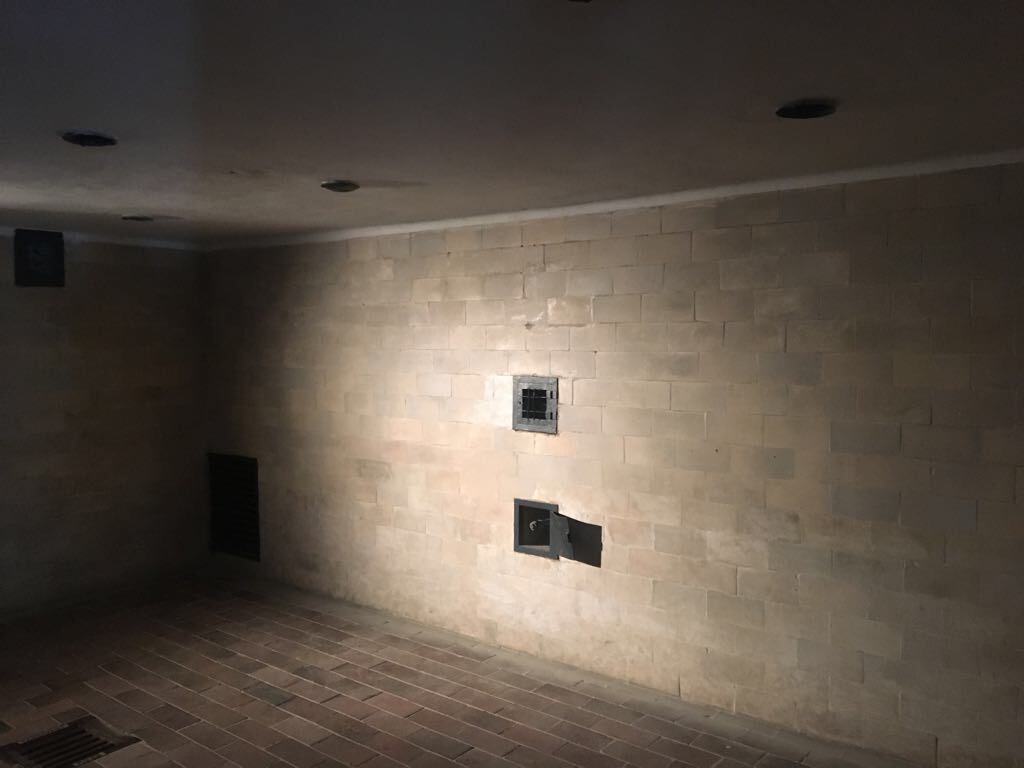
Camps like Dachau, quite literally started with thoughts. Thinking Jews, gays, mental weakness, were ‘things’ to be eradicated. Categorising difference into varying degrees of hate, stars, triangles of varying colours. Pink, red, blue, applied to people as casually as a colour swatch from a hardware store. Thinking that there was only one right way, that allowing political opposition was unnecessary, a sign of weakness.
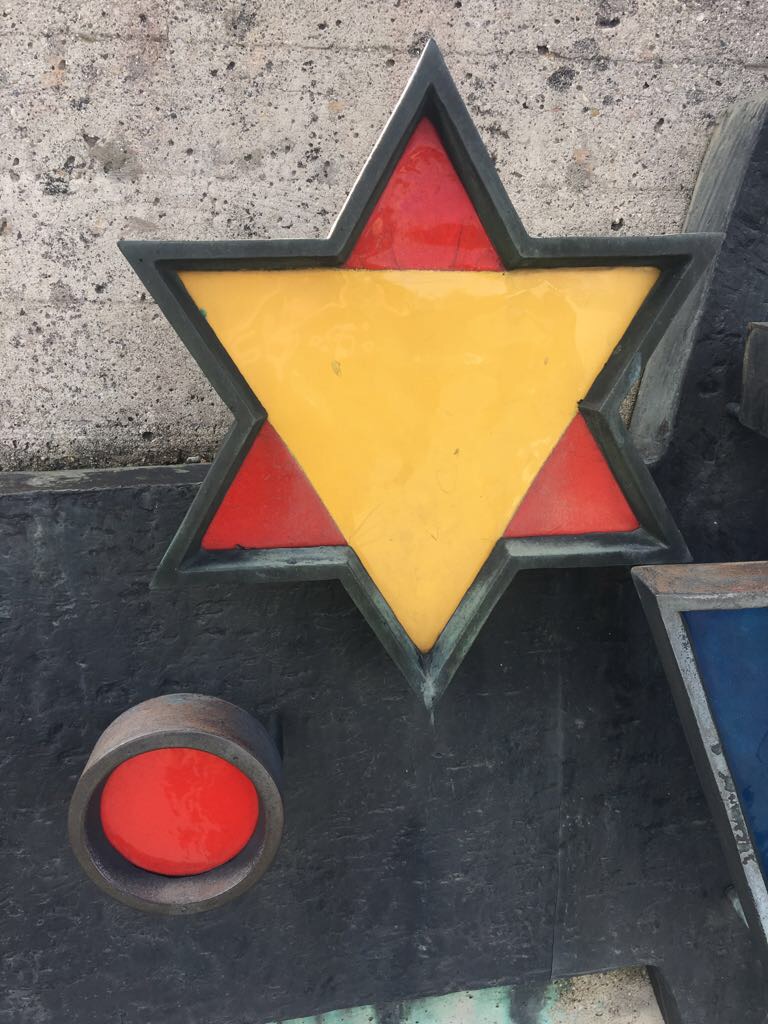
It reminds me of Hannah Arendt’s book Eichmann in Jerusalem: A report on the Banality of Evil, a light read which describes the terrible, and meticulously planned, killing apparatus of nazi Germany during the trial of one its leading bureaucrats (don’t worry, if you can’t be bothered reading there’s also a Netflix movie which roughly, and at times fairly inaccurately, covers the subject of Eichmann).
When you walk through Dachau, there really doesn’t seem anything special about this evil.
I assume some carpenters, plumbers and builders came and built the halls and torture cells of the concentration camp. I know, from the tour guide, that the camp put in an order for the ovens to cremate some of those put to death, whether shot, hung or tortured to death.
And I think all officials at the time would have been satisfied that there was a competitive tender process to make sure they got the correct specs for the ovens at the best price. Just as Adolf Eichmann, and tens of thousands of other bureaucrats, made sure the trains to Auschwitz were scheduled in a way that made sure the camp, and other camps like it, could most efficiently and effectively gas and dispose of its million plus victims in a timely manner.

There was a show on TV which I loved when I was growing up called Monkey. There was a line in the opening credits, ‘with our thoughts we make the world’. Monkey was travelling with a Buddhist monk, who may have been a nun, she was a bit androgynous, on a quest somewhere to get something special.
Probably along the way they might have learnt that all the time the special thing was in their hearts. I can’t remember, I was more interest in the fights with the monsters along the way.
The thoughts that made the world of Dachau, were the same type that allow someone to walk into a mosque and mow down people with an automatic rifle, or blow up a church at Easter, or kill people in a synagogue at Passover.
It all starts with vilifying the other, for whatever reason, (honestly I cannot understand why people insist on doing that, and that, I think, is a good thing).
But it’s one thing to say you wouldn’t join the executioners, and another to ask yourself what you would actually you do to make sure no one had to wear a coloured triangle or star in the first place. Especially if you’re not the one having to wear the label. Remember the nazis started out just like many other right-wing parties of today. Places like Dachau, and the systematic destruction of the holocaust, only came later.
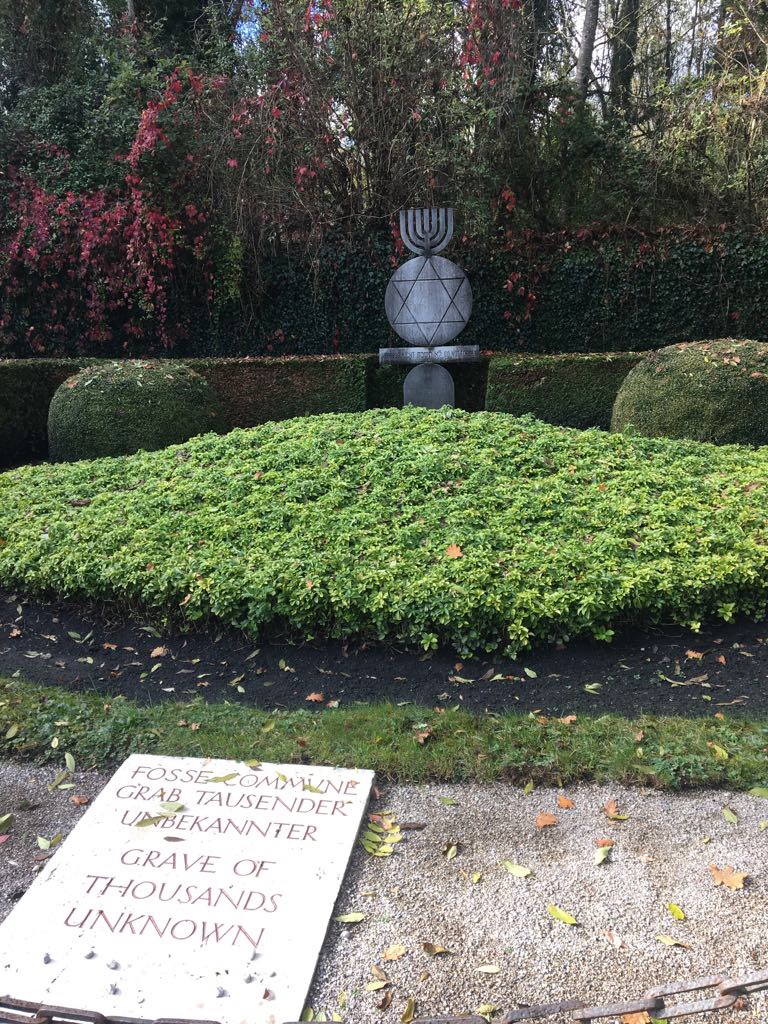
If you really don’t think you need to question what the world should be like, maybe you need to look at a world where not enough questions were asked about what the world should be like.
Take the photo above, for example, it is located near a wall, where hundreds, or thousands of inmates were summarily executed and their bodies buried, and burnt, for no other reason than being a Jew, or a communist, or whatever.
We need to know these things have happened, to know what could happen to a world we neglect. That it could start with something as seemingly innocuos as labelling others as different, not from around here, not German enough or Australian enough, but which can lead, in its extreme, to the type of everyday evil that creates a place like Dachau.
Sometimes it is worth being reminded that still in the world, be it today there exists those who could take other humans out to a wall, and, full of hate, and with hardly a thought, end their life, and to just as casually, not just casually, systematically, and consistently, day after day for over a decade, end the life of others, until there are 30,000, forgotten, buried, burnt.
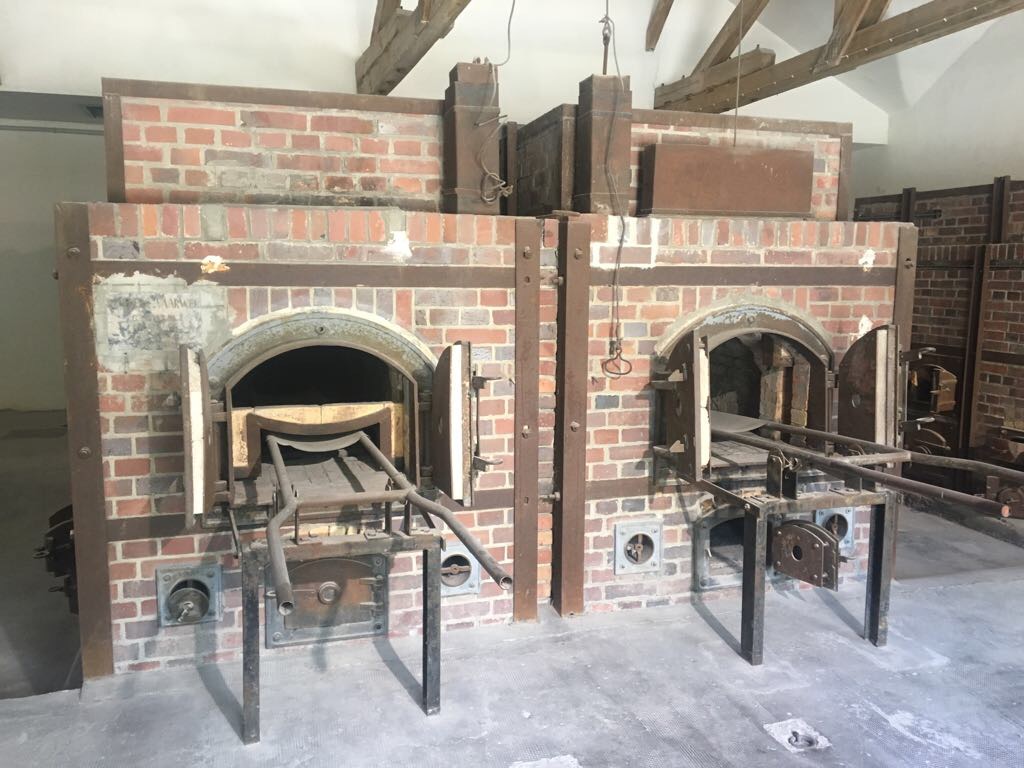
But surely, you say, these bad people were eventually brought to justice after the war. Well, I spoke with our tour guide about this.
‘Were many of the perpetrators brought to justice?’ I ask.
‘Not that many’, he replies, ‘a few of the main ones, the most sadistic leaders. After the war the Americans were soon too concerned about the Russians and they didn’t want to put the local population offside, and they needed the civil servants [who had just done such a good job organising the murder of millions] to help run West Germany’. He rubbed the lobe of his ear. ‘So where are you from?’ he asks.
‘Australia.’ I say.
‘One of our restaurant’s chef is from Australia’ he nods at a large man with a beard walking by. The Aussie makes some friendly joke, but I forget what he said, he looks like he’s ending his shift, Dachau is closing for the day, he’s heading out to freedom.
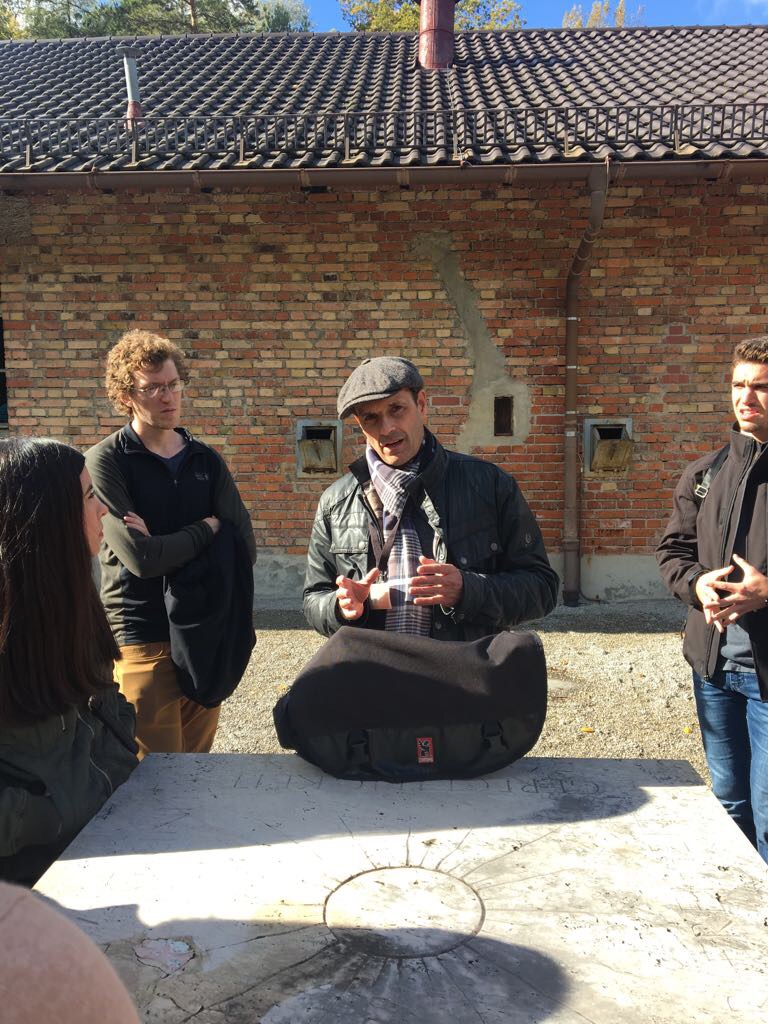
My tour guide turns back to me, ‘What now? Oktoberfest?’
‘Yeah, I thought I might check it out. Actually I have to go, the bus for the train is leaving in a minute.’ I thank him and head on my way back into Munich.
The soberness of Dachau fades a little as I look from the window of the bus, then train, back to Munich.
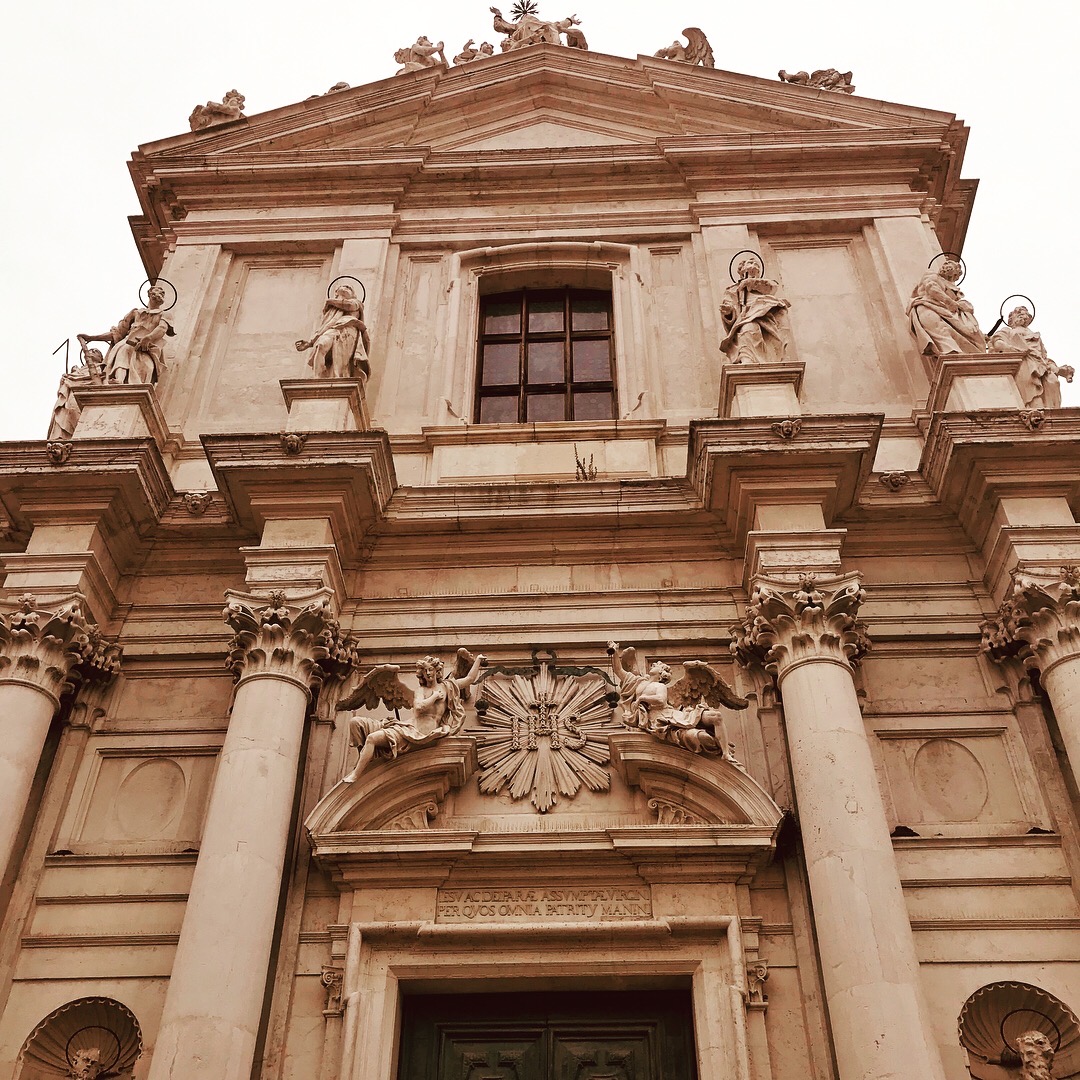
I haven’t planned much of this, I’m only in Munich for a day and I just decided on visiting Dachau last night after having a truffle hamburger – just a regular hamburger with truffles on. As for Oktoberfest, though I’ve heard of it of course, I don’t know much about it, apart from it’s got some association with beer and lederhosen, and it’s held mostly in September for some reason.
But this lack of knowledge doesn’t matter too much as at the main Munich bahnhof there’s arrows on the ground and the word Oktoberfest written all over the place pointing me in the direction of the festivities. As I get closer, winding my way through Munich’s kind of mediaeval streets, the crowds swell, and soon we rush like a spring stream into one of the main entrances.
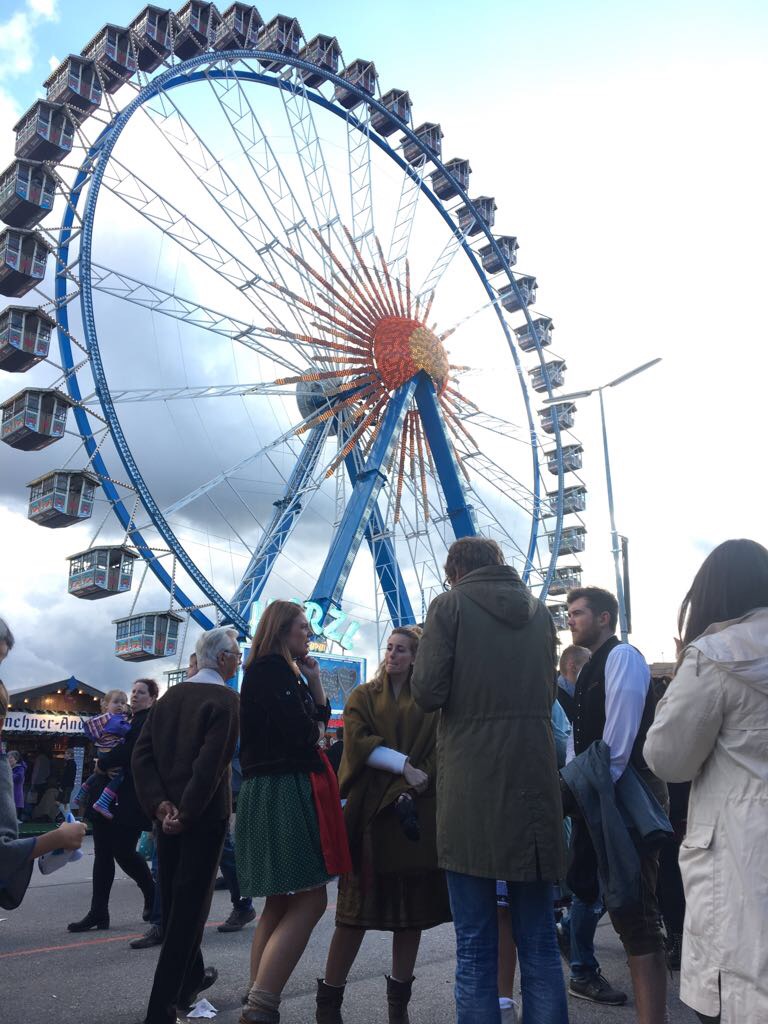
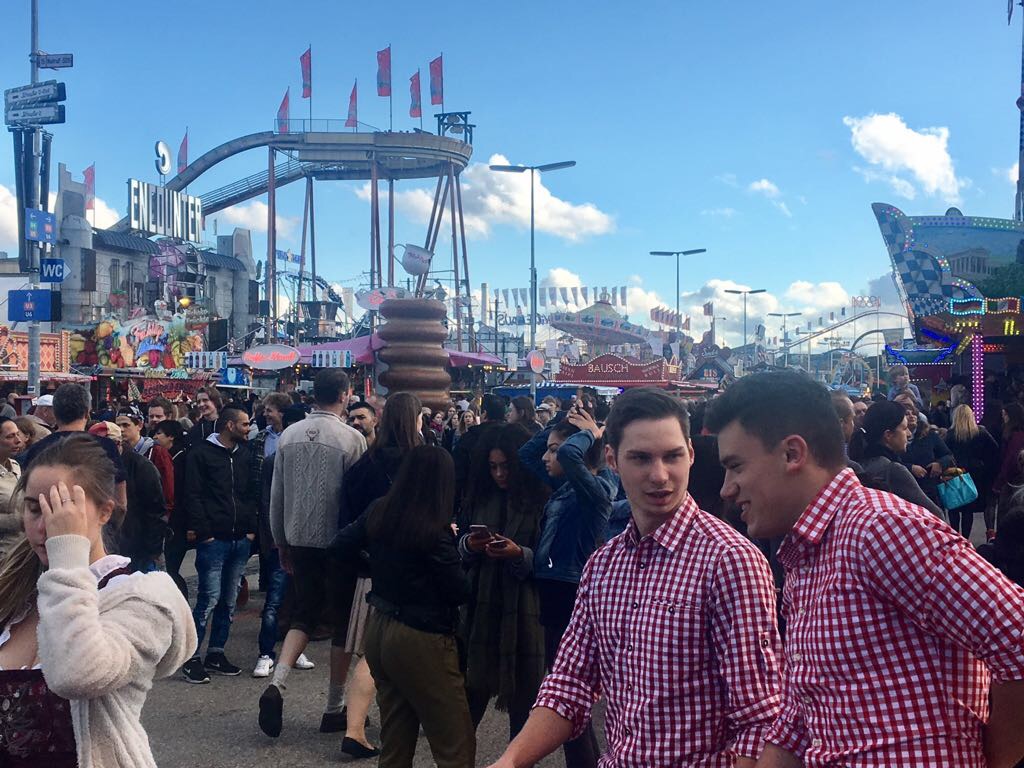

Soon I’m amongst the Oktoberfest crowds, walking through the rides and bratwurst, nut and pretzel stands. Dodging people on their cell phones, and children with inflatable dolphins and unicorns, then into the massive beer halls, giant pitchers of beer floating past as traditional whips dances are performed on table tops. Lederhosen and traditional German costumes abound.
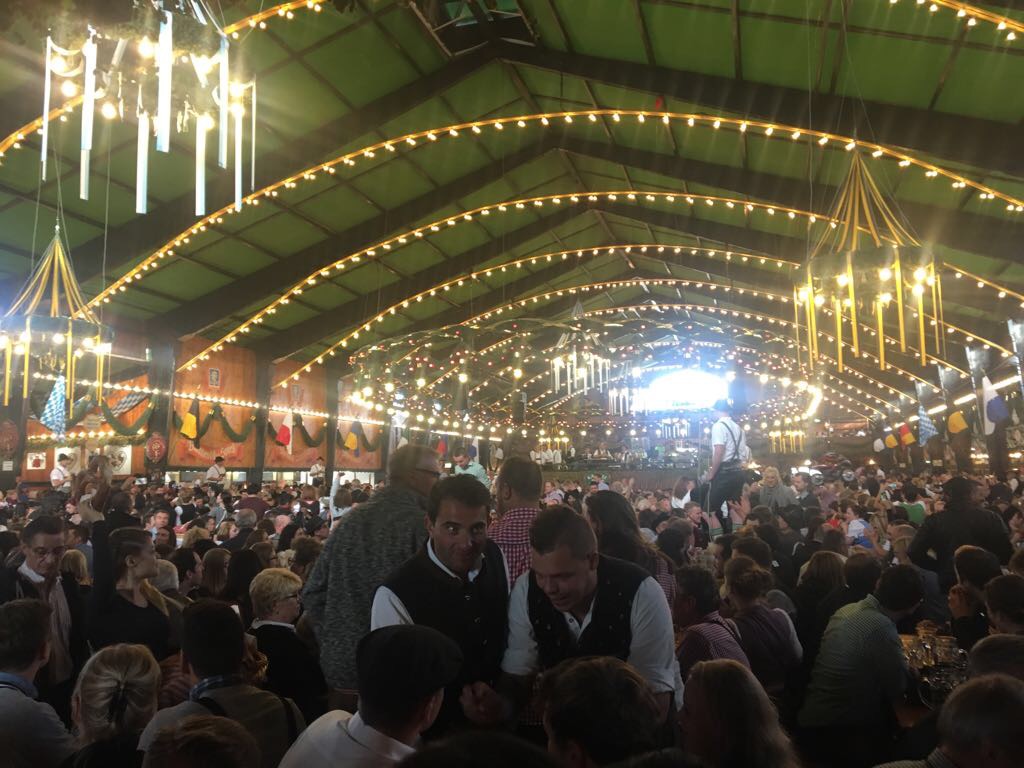

You know what, at other times I might be more cynical about such a festival, judgemental even, thinking this is just an excuse to get drunk with no real importance in the world, something Aussie yobbos* attend.
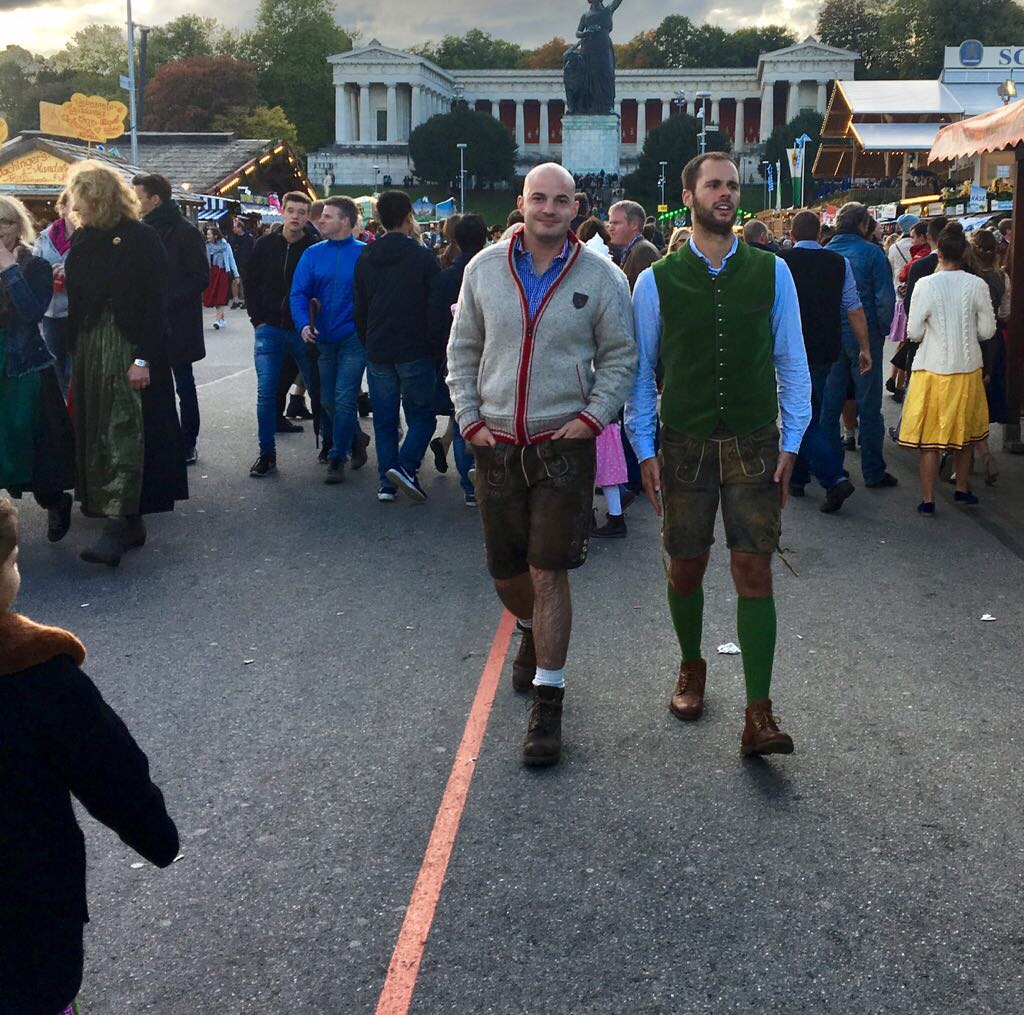
But the general vibe is rather pleasant, people are nice, accepting and generally relaxed. The beer looks inviting, and let’s face it, the women in their traditional outfits, are so beautiful.
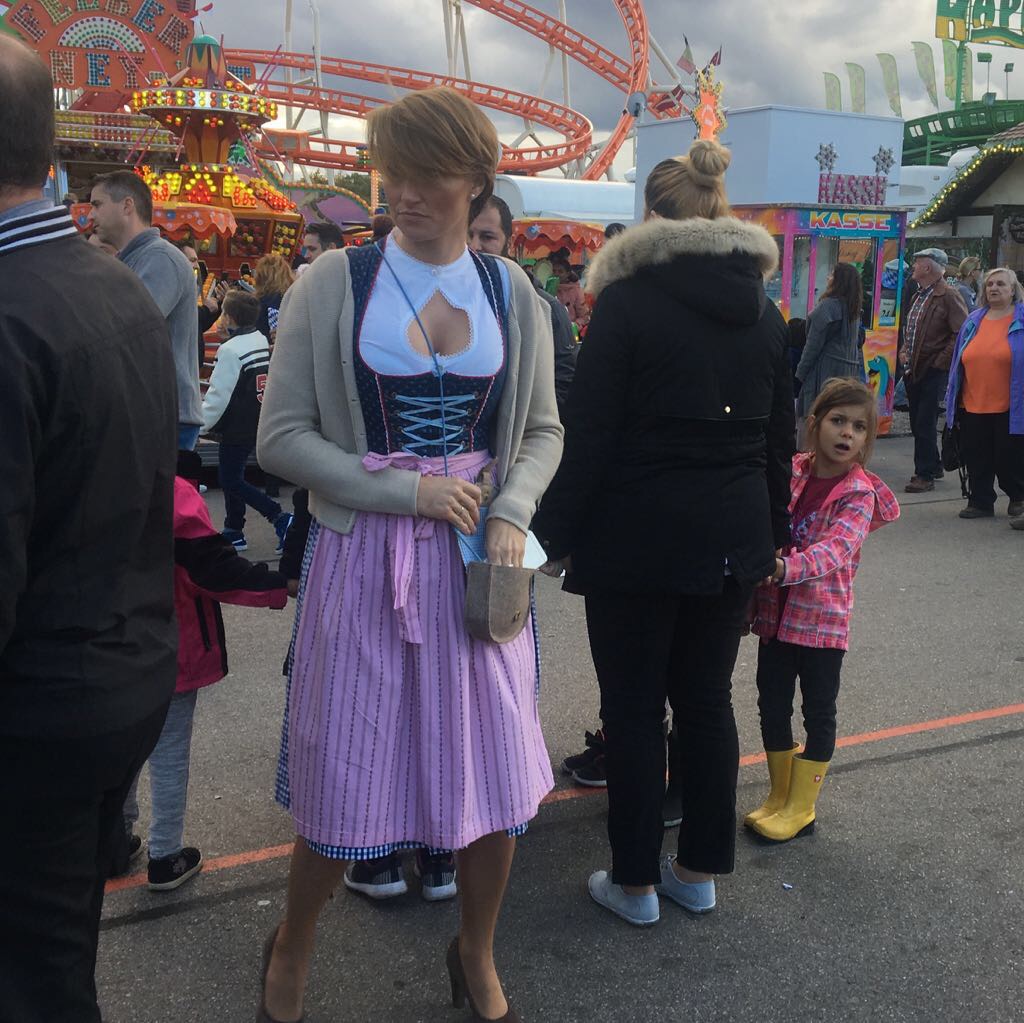
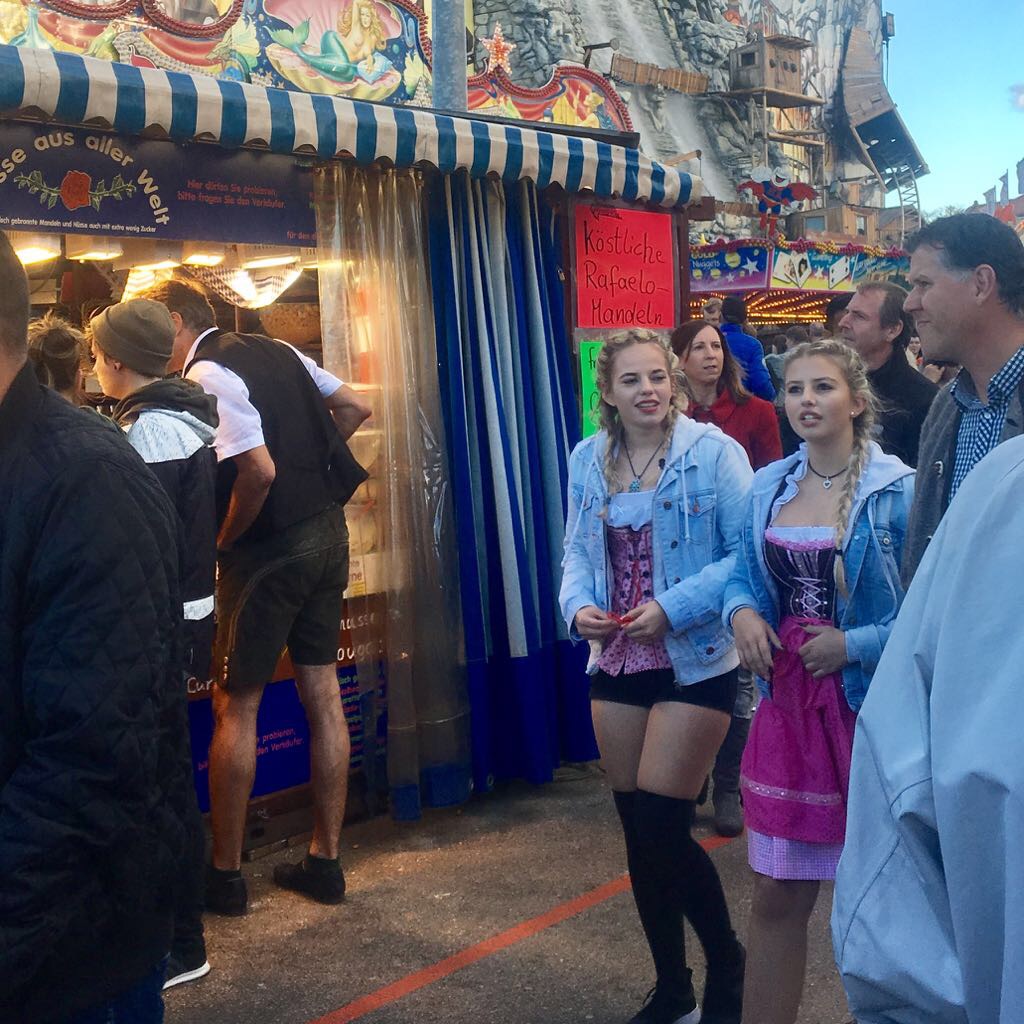
What’s more, people are happy. People are accepting. People don’t think difference is bad. People in wheelchairs, looking so fine, are getting tipsy with beautiful German fräuleins. There’s general gayness in the air, not the yobboness** I had feared and expected.
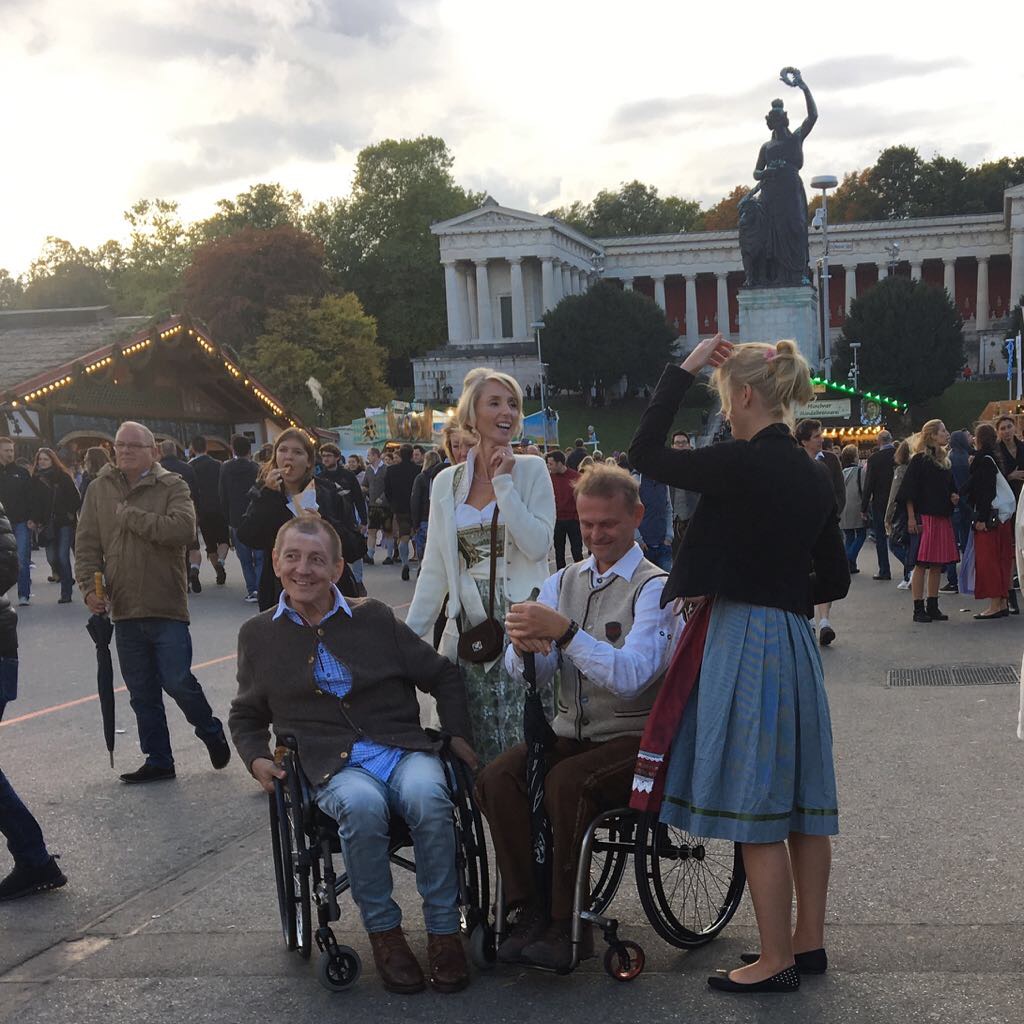
Love, not hate, abounds. Despite the best efforts in the world for the haters to promote hate, us lovers can still love much better than those fools. It may seem as corny and clichéd as a giant heart shaped Oktoberfest cookie, but darkness is just the absence of light. Share, love each other, hug, enjoy life. It’s easy if you try.

And as much as I may once have thought that festivals like Oktoberfest have no real and meaningful value in the world, we need to feel grateful that Oktoberfest remains live and well, while Dachau has faded into history, not to be forgotten, but, with our love, and beer, and pretzels, and tolerance, and openness, never again to be repeated. As Yusuf Islam says,
Dreaming about the world as one
And I believe it could be
Someday it’s going to come
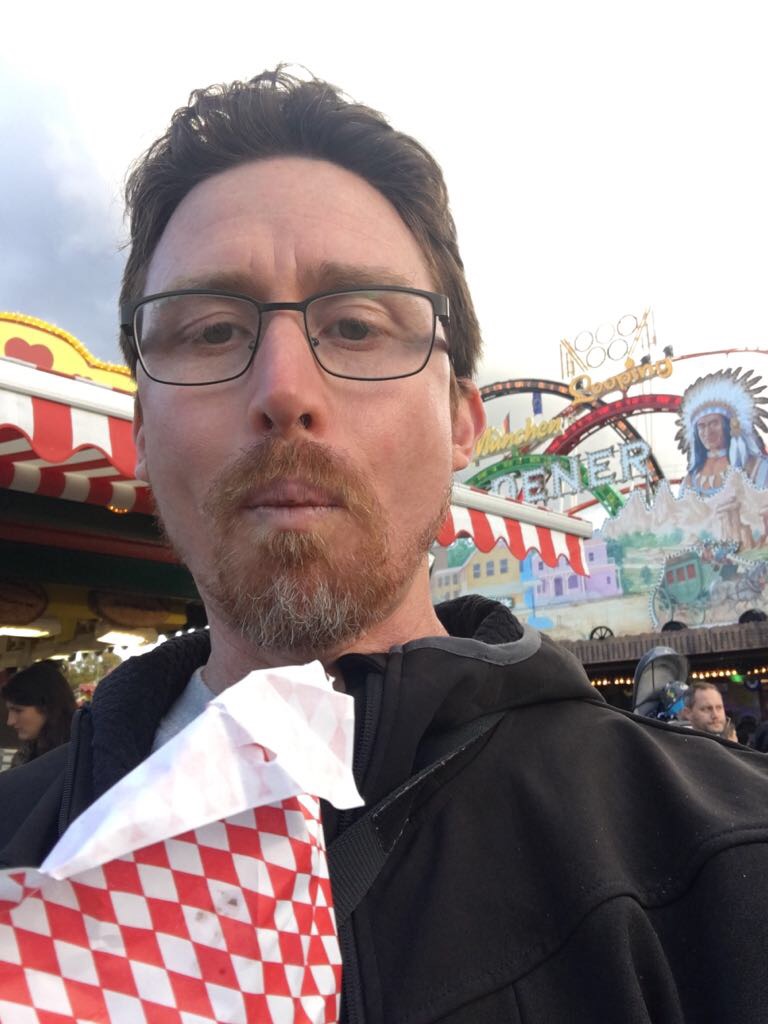
And as I walk, I think how I can keep promoting a world of inflatable unicorns, bratwurst, beer and joy. Because the alternative is sadness.
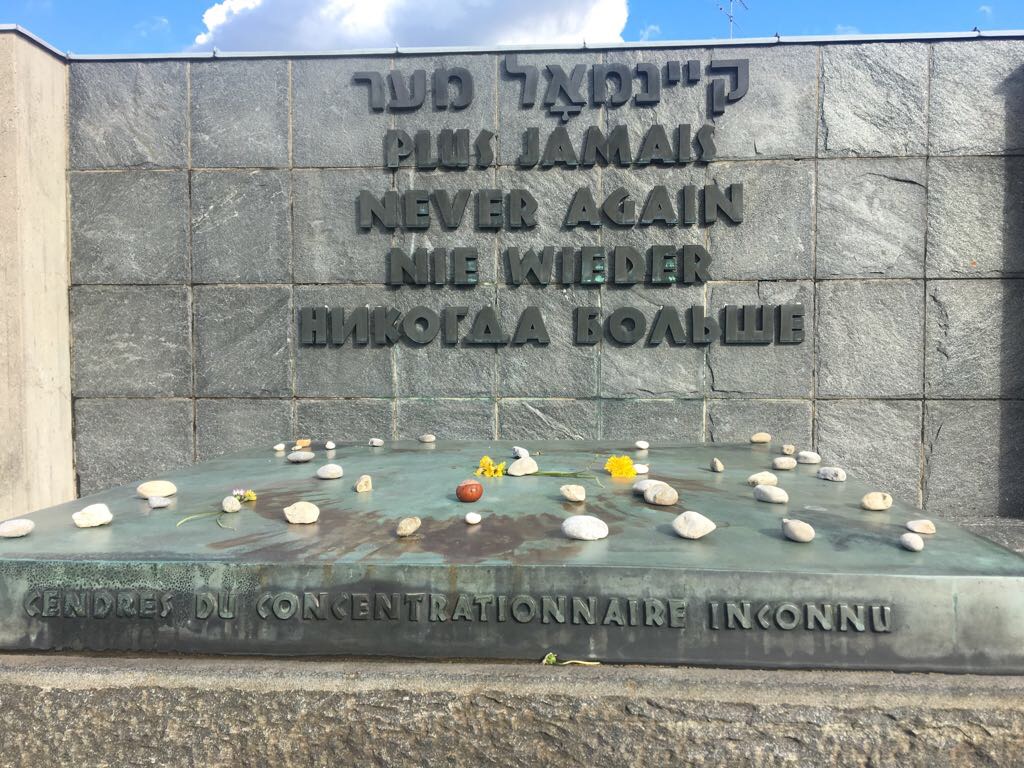
* a yobbo is a boofhead, a silly bugger, a bloody wanker, a galah mate
** yobboness is the act of being a yobbo
greenpaddocks@gmail.com